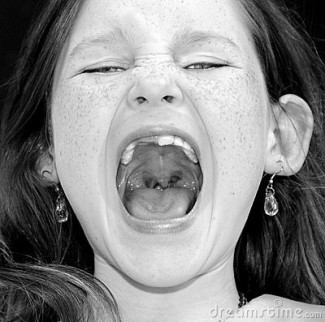Tweens/Teens and Anxiety: Using Visualization, Mindfulness
Everyone has anxiety, including teens and tweens. Anxiety is important. It’s a natural reaction that our body has to a new situation. It serves as a basic survival function – like a warning system that alerts us whenever we perceive a dangerous experience. For some, it works over time and needs to be controlled. Techniques including visualization and mindfulness can help tweens or teens with anxiety.
Techniques for Tweens/Teens with Anxiety Including Visualization and Mindfulness
- Visualization – The tween/teen needs to talk about their anxiety in tangible ways. What does it look like? How big is it? Where does it live? What does it sound like? Eventually, they draw the anxiety as they see it and we talk about the details. Basically, have them paint a very vivid picture of their anxiety. The key is to get them to connect their anxiety to the painting instead of some scary elusive being next time the anxiety visits.
 Writing/Journaling – The teen or tween can write stories (mainly fantasy) where they challenge the anxiety and win. This starts to take the power away from the anxiety. You can get some truly amazing stories from your clients, who have big imaginations. It also gives you insight into what about the anxiety is the scariest for each teen/tween with anxiety and use that information to help them moving forward.
Writing/Journaling – The teen or tween can write stories (mainly fantasy) where they challenge the anxiety and win. This starts to take the power away from the anxiety. You can get some truly amazing stories from your clients, who have big imaginations. It also gives you insight into what about the anxiety is the scariest for each teen/tween with anxiety and use that information to help them moving forward.- Building a mantra – A mantra is a saying that is meaningful to you that when repeated, makes you feel calm, confident and grounded. You can also call this “your theme song.” It can be completely made up, a great line you heard from a movie or a verse from a song/poem that just makes you feel good, powerful and strong. Once a tween/teen chooses a mantra, have them repeat it pretty consistently until they fully embrace it. You want them to “naturally” start reciting the mantra next time they have an anxiety attack to ground themselves and move through the anxiety.
- Addressing the anxiety – Once you have a visual that truly encompasses what the anxiety looks like, have the teen or tween talk to the anxiety. For example, “What do you want to say to your anxiety? How does it make you feel? Have you missed out on sleepovers, parties, or trips because of it?” The key here is to have the teen or tween with anxiety to connect their feelings to the words they are sharing while looking at the drawing of their anxiety. Otherwise, they are just words. If a tween/teen feels disgust then I want to hear disgust in their voice. If they feel anger, I want to hear the anger and so on.
- Mindfulness – Eventually, work your way up to mindfulness strategies such as positive coping skills and relaxation techniques. Have them write non-fiction stories about overcoming the anxiety in very real ways based on the techniques that you work through in session. The point of this exercise is to have them put these techniques into practice the next time they have an actual anxiety attack.
A combination of the above techniques like visualization and mindfulness can help teens or tweens with anxiety and each skill generally builds upon the next.
This article was written by:
 Dr. Carol Langlois is a youth, culture and self-esteem expert who runs workshops and confidence-coaching sessions for teens. Her blog contains practical information for parents, teachers, counselors and teens related to female self-esteem and empowerment. Her book, Girl Talk: Boys, Bullies and Body Image is a compilation of interviews with teen girls on the topic of self-esteem which also offers an effective and practical system designed to RAISE (Resilience, Attitude, Independence, Self-Respect and Empowerment) teen self-esteem. You can find Dr. Langlois on Facebook and Twitter.
Dr. Carol Langlois is a youth, culture and self-esteem expert who runs workshops and confidence-coaching sessions for teens. Her blog contains practical information for parents, teachers, counselors and teens related to female self-esteem and empowerment. Her book, Girl Talk: Boys, Bullies and Body Image is a compilation of interviews with teen girls on the topic of self-esteem which also offers an effective and practical system designed to RAISE (Resilience, Attitude, Independence, Self-Respect and Empowerment) teen self-esteem. You can find Dr. Langlois on Facebook and Twitter.
To be a guest author on the Your Mental Health Blog, go here.
APA Reference
Author, G.
(2015, February 25). Tweens/Teens and Anxiety: Using Visualization, Mindfulness, HealthyPlace. Retrieved
on 2026, March 4 from https://www.healthyplace.com/blogs/yourmentalhealth/2015/02/tweens-teens-anxiety-visualization-mindfulness
Author: Guest Author
Thank you for this. I have two teen boys and suffer from bipolar myself. My youngest , 16 years old, I believe has anxiety but due to his fathers beliefs and ways , it's become hard to get him to talk to me or admit . Any suggestiins are welcome.